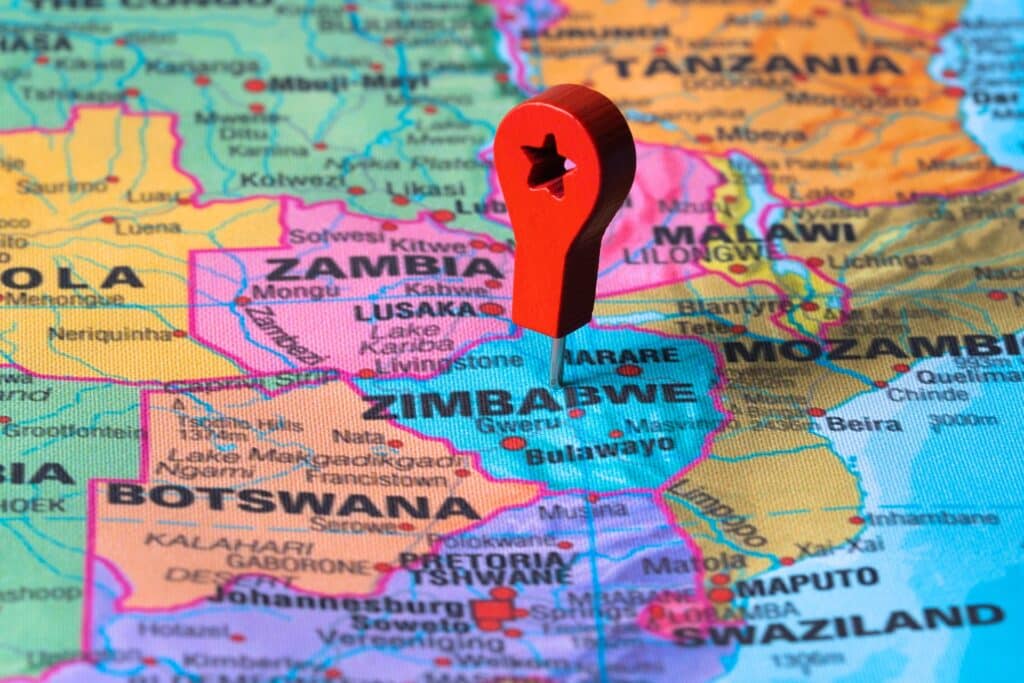The world’s biggest forest offset project is now on the chopping block after the Indonesian government revoked CarbonPlan’s license to operate a major carbon abatement project in Borneo, citing violations of local regulations.
Wood Central understands that the Indonesian Ministry of Environment and Forestry’s decision covers more than 36,000 hectares of forests in Central Kalimantan, an area that has already issued more than 30 million credits over the past decade, with implications for global carbon markets.
As reported by Bloomberg overnight, the Indonesian government has revoked the licence holder, Rimba Raya Conservation, for committing three offences:
- Transferring its license to a third-party ministry approval
- Operating outside its sanctioned area and;
- Failing to make the required payments to the state
It comes amid increased criticism over voluntary carbon markets.
Last year, Wood Central reported that talks to establish an international carbon credit market—which could be worth as much as US $1 trillion over the next 25 years—were dashed after the EU, US, and Global South could not agree on the role of regulation in the new market.
“Trading carbon credits requires strong environmental and human rights guardrails,” according to Gilles Dufrasne, policy lead at Carbon Market Watch, who spoke on the protracted talks from COP28 in Dubai. “The text on the table just didn’t provide this. It would have risked reproducing the mistakes of voluntary carbon markets, and by rejecting it, negotiators made the best out of a bad situation.”

Carbon offsets are a key part of the suite of programmes introduced by global governments to tackle climate change – with Africa, Latin America and South East Asia capitalising on the surge of capital looking to de-pollute and green up economies to meet climate commitments. They achieve this by allowing polluters to counter their emissions by buying credits from projects like forest reserves in Indonesia.
According to Bloomberg, Rimba Raya Conservation stakeholders include Hong Kong-based InfiniteEarth, which signed an agreement with Rima Raya to sell carbon credits and market the project. The company reported registering and validating the project under Indonesia’s carbon registry and standard.
In 2021, IndiniteEarth inked a deal with Toronto-based Carbon Streaming to buy more than 50 million Rimba Raya credits over the next 20 years. As per an April 26 statement, IndiniteEarth said it is waiting for more clarity from InfiniteEarth and the Indonesian government.
Last year, Wood Central reported that a raft of Australian businesses were exposed to another carbon project: a failed REDD+ project in Zimbabwe. This project left 3 million carbon credits squandered after a tree planting scheme failed to get off the ground.
Calculating carbon projects is difficult. The answer is not black or white.
In February, Wood Central reported on a new study that claimed carbon projects “triple stated” carbon removals. Professor Runsheng Yin stressed that tree planting initiatives must be held to far greater scrutiny “to ensure that C02 outputs are properly offset.”
In his latest research, ‘Global Forest Carbon: Policy, Economics, and Finance,’ Professor Li said accuracy is crucial because of the severity of the climate crisis. He added that offsetting, whilst important, needs a rethink.
“While nature-based solutions have an essential role in helping us stem the worst impacts of climate change, my research shows that the potential of forest carbon offsetting may not be as great as some analysts have claimed.”
“Existing studies have failed to conform to the accounting principles of the Paris Agreement; therefore, rigorous methods to offset and reduce greenhouse gas emissions have never been more urgent.”
- To learn more about the International Carbon Market, how carbon credits work, and how a new market will regulate forest offset projects, click on Wood Central’s special feature.






